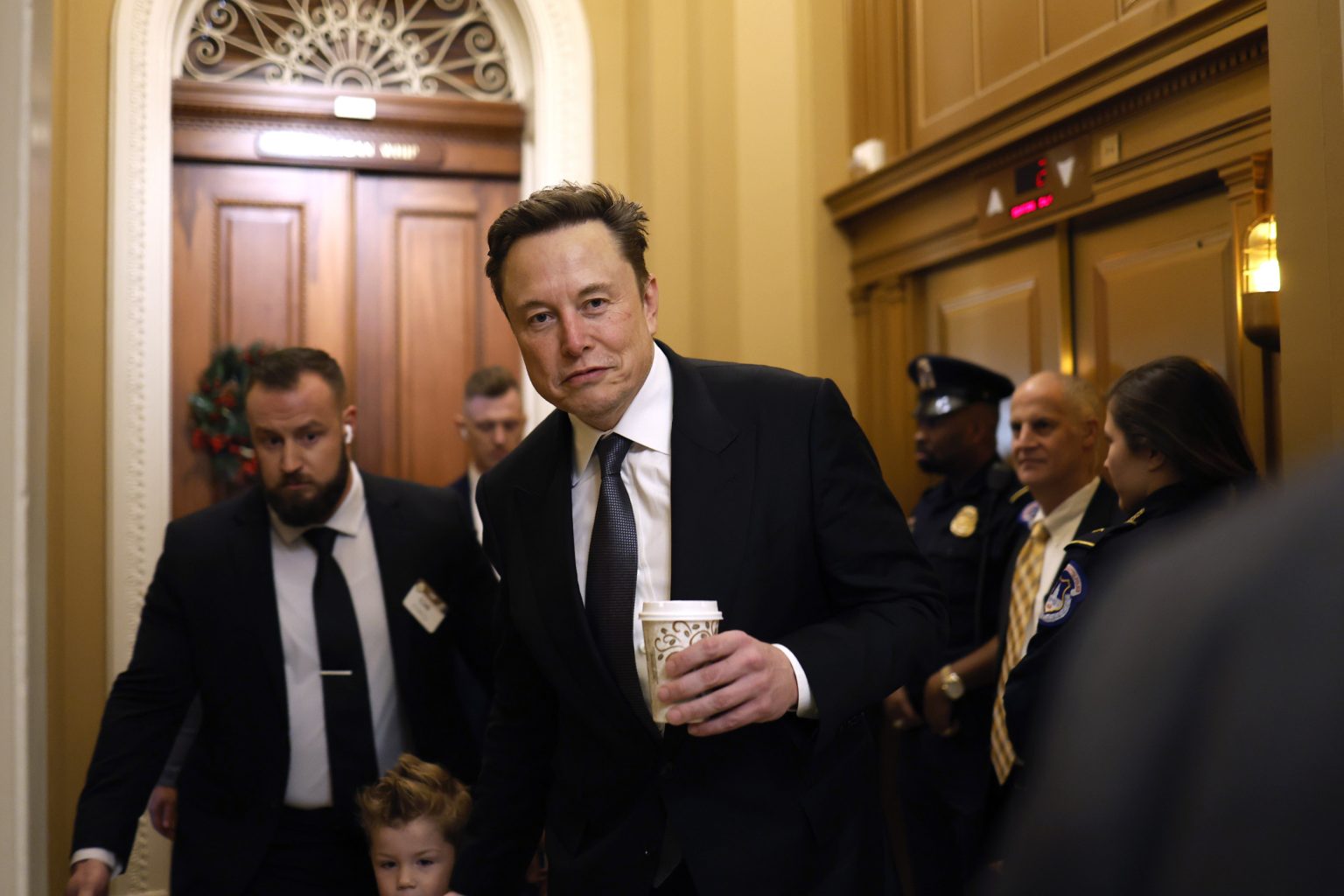The political landscape is witnessing an unprecedented dynamic with the emergence of billionaire Elon Musk as a powerful force, prompting some to even label him the “prime minister” of the United States. This unusual characterization underscores the significant influence Musk wields, particularly within the Republican Party, and raises questions about the blurred lines between wealth, technology, and political power. Musk’s recent involvement in the high-stakes negotiations over a bipartisan spending agreement highlights his growing influence and has ignited a fierce debate about the appropriate role of billionaires in shaping government policy. While Republicans have largely embraced Musk’s involvement, Democrats have expressed deep concerns, arguing that his actions undermine democratic processes and place undue power in the hands of a single, unelected individual.
The controversy surrounding Musk’s political involvement reached a fever pitch during the recent congressional deliberations over a crucial spending bill. Initially, a bipartisan agreement seemed within reach, offering a path to avoid a government shutdown. However, Musk’s public disapproval of the deal, expressed through his platform X (formerly Twitter), appeared to exert significant pressure on Republican lawmakers, ultimately leading to the initial agreement’s collapse. While a new deal was eventually reached, the episode exposed the extent of Musk’s sway within the GOP and fueled anxieties about his capacity to influence policy decisions from outside the established political framework. This incident served as a stark reminder of the potential for powerful individuals, particularly those with vast financial resources, to disrupt and reshape the political process.
Representative Tony Gonzales of Texas crystallized the sentiment of Musk’s growing influence by referring to him as the “prime minister.” This remark, made during a Sunday interview on CBS News’ Face the Nation, captured the perception of Musk’s outsized influence on the Republican Party and its policy positions. Gonzales acknowledged having spoken with Musk multiple times during the week of the spending bill negotiations, further emphasizing the billionaire’s direct engagement with elected officials. While acknowledging Musk’s unelected status, Gonzales argued that his voice reflects the sentiments of a significant portion of the electorate. This perspective, shared by many within the Republican Party, frames Musk not just as a wealthy individual but as a representative of a broader constituency, lending further legitimacy to his political interventions.
The relationship between Musk and former President Donald Trump forms a crucial backdrop to understanding the billionaire’s political ascendancy. Musk’s substantial financial contributions to Trump’s campaigns, coupled with his consistent public support and advisory role, have cemented a strong alliance between the two. This close relationship raises concerns about the potential for undue influence and the concentration of power within a small circle of individuals. Trump’s appointment of Musk to co-lead the Department of Government Efficiency (DOGE) further solidified the billionaire’s position within the Trump sphere of influence and signals his potential to shape governmental operations. This appointment, alongside biotech entrepreneur Vivek Ramaswamy, underscores Trump’s willingness to empower figures outside the traditional political establishment and raises questions about the future direction of policymaking under his potential administration.
The contrasting reactions to Musk’s political activities from Democrats and Republicans highlight the deep partisan divide that characterizes the current political climate. Prominent Democrats, such as Senator Bernie Sanders, have vehemently criticized Musk’s involvement, arguing that it undermines democratic principles and allows billionaires to exert undue control over government decisions. Sanders’s public condemnation reflects a broader concern within the Democratic Party about the growing influence of wealthy individuals in politics and the potential for their interests to overshadow the needs of ordinary citizens. Conversely, many Republicans, including Senator Bill Hagerty, have lauded Musk as a positive force, crediting him with increasing transparency and holding elected officials accountable. This divergent perspective reveals the starkly different views of Musk’s role, with Republicans largely embracing his influence while Democrats express deep apprehension.
Looking ahead, the trajectory of Musk’s political influence remains uncertain. The potential for tensions between Musk and Trump, both powerful figures with strong personalities and desires for the spotlight, adds another layer of complexity to the evolving political landscape. However, Musk’s immense wealth and his willingness to leverage it for political purposes suggest that his influence is likely to persist, particularly within the Republican Party. This raises crucial questions about the future of American democracy and the role of wealth in shaping political outcomes. As Musk continues to exert his influence, the ongoing debate over the proper boundaries between private wealth and public power is sure to intensify, with far-reaching implications for the balance of power in the United States.

